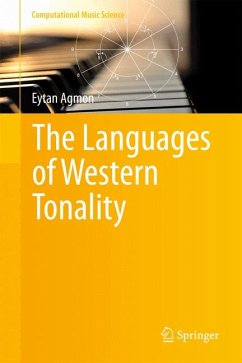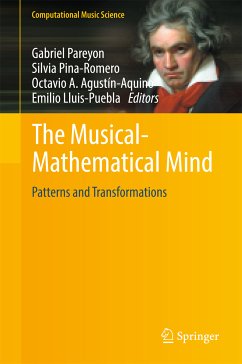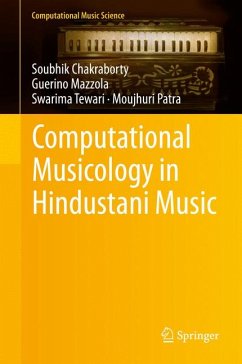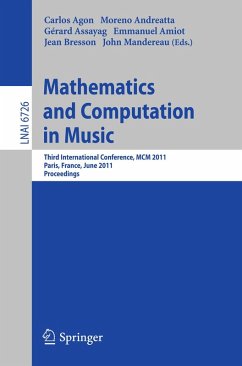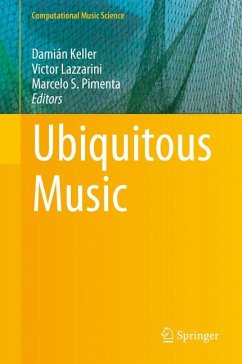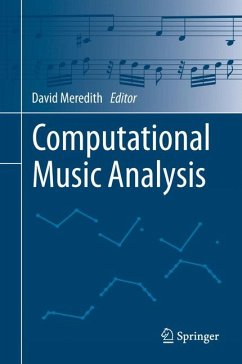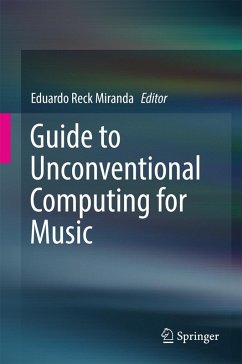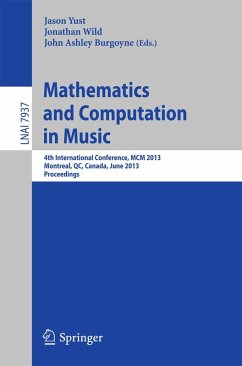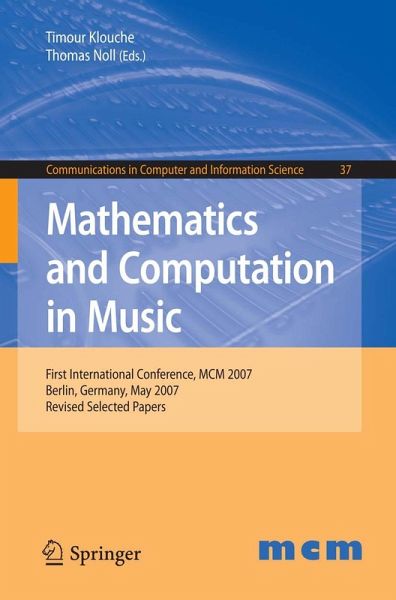
Mathematics and Computation in Music (eBook, PDF)
First International Conference, MCM 2007, Berlin, Germany, May 18-20, 2007. Revised Selected Papers
Redaktion: Klouche, Timour; Noll, Thomas
Versandkostenfrei!
Sofort per Download lieferbar
40,95 €
inkl. MwSt.
Weitere Ausgaben:

PAYBACK Punkte
20 °P sammeln!
This volume comprises a selection of papers presented at the first International C- ference on Mathematics and Computation in Music - mcm2007. The conference took place at the Staatliches Institut für Musikforschung PK - National Institute for Music Research in Berlin during May 18-20, 2007 and was jointly organized by the National Institute for Music Research Berlin and the Society of Mathematics and Computation in Music. The papers were selected for the conference by the program committee and classfied into talks and posters. All papers underwent further selection, revision and elaboration ...
This volume comprises a selection of papers presented at the first International C- ference on Mathematics and Computation in Music - mcm2007. The conference took place at the Staatliches Institut für Musikforschung PK - National Institute for Music Research in Berlin during May 18-20, 2007 and was jointly organized by the National Institute for Music Research Berlin and the Society of Mathematics and Computation in Music. The papers were selected for the conference by the program committee and classfied into talks and posters. All papers underwent further selection, revision and elaboration for this book publication. The articles cover a research field which is heterogeneous with respect to content, scientific language and methodology. On one hand, this reflects the heterogeneity and richness of the musical subject domain itself. On the other hand, it exemplifies a t- sion which has been explicitly intended by both the organizers and the founders of the society, namely to support the integration of mathematical and computational - proaches to music theory, composition, analysis and performance. The subdivision into three parts reflects the original structure of the program. These parts are opened by invited papers and followed by talks and posters.
Dieser Download kann aus rechtlichen Gründen nur mit Rechnungsadresse in A, B, BG, CY, CZ, D, DK, EW, E, FIN, F, GR, HR, H, IRL, I, LT, L, LR, M, NL, PL, P, R, S, SLO, SK ausgeliefert werden.



